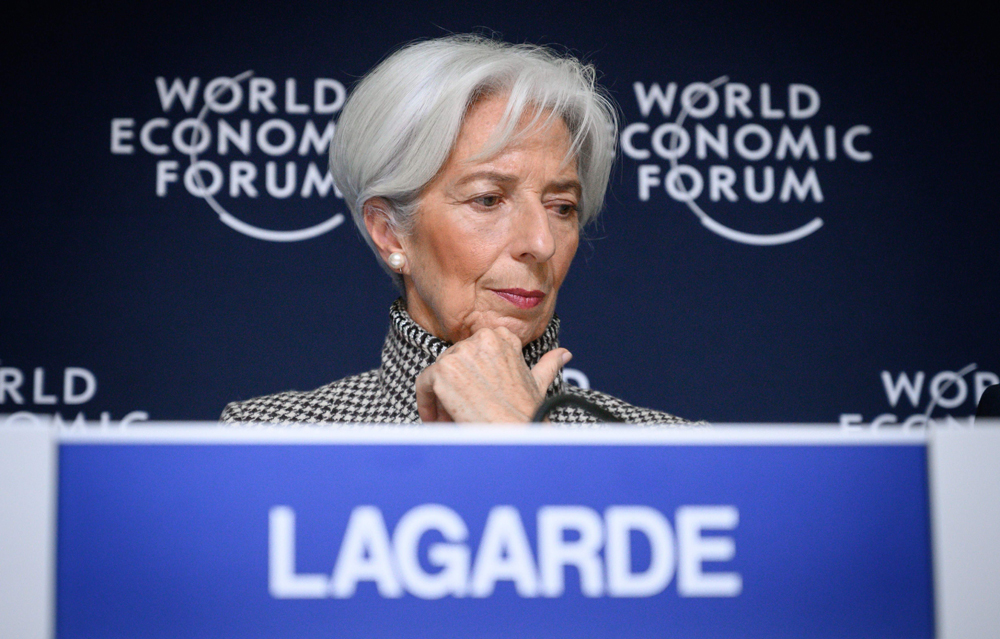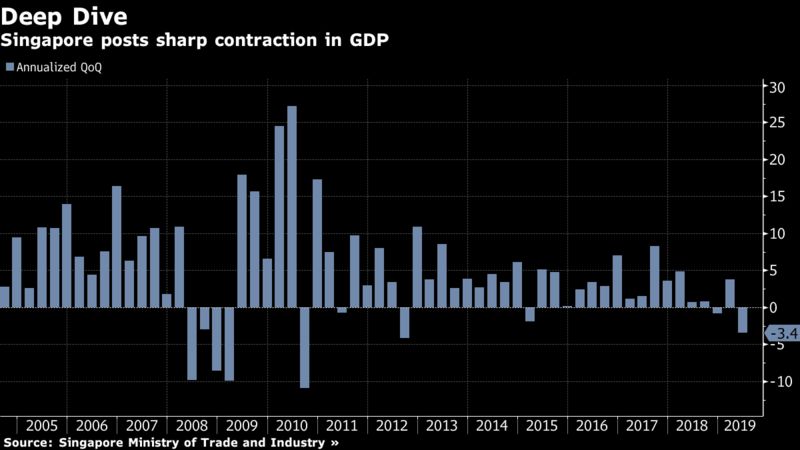- GOLD IRA
- Download Our 2024 Precious Metals IRA Investor’s Guide.
Click Here  Gold IRA
Gold IRA
 Investing
Investing
-
- CRYPTO IRA
- PRICES & STATS
- RETIREMENT PLANS
- BLOG
 Questions? Call (888) 820 1042
Questions? Call (888) 820 1042
IMF Report and Exports Decline Sound Alarm for the Global Economy
Disclosure: Our content does not constitute financial advice. Speak to your financial advisor. We may earn money from companies reviewed. Learn more

This past week saw warnings emerge on two critical economic areas of the world. Throughout both Europe and Asia, total factory activity declined for June. Meanwhile the United States demonstrated only a little bit of economic growth. The news from Asia is especially critical, as the International Monetary Fund states that Asian countries provide over 60 percent of the world's total GDP. As such, it is also the global growth engine.
The economic news unfortunately is not good. This is a timely reminder that you need to do something to protect and safeguard the value of your investment and retirement portfolios.
IMF Worried About Serious Risks to Euro Zone Economies
This past Thursday the IMF released an annual report where it discussed the risks threatening the European economies. The organization sees three main risks threatening the euro zone. These include threats to trade, Italy, and Brexit (which could see a disorderly exit of the world's fifth largest economy from the European Union on October 31st).
The threats are great enough that the IMF is backing up new plans for the European Central Bank to begin applying yet another round of economic stimulus. The International Monetary Fund projected that the 19 nation shared currency block will see its output decline from 2018's 1.9 percent to 1.3 percent in 2019. They hope for a recovery to 1.6 percent by 2020.
Yet even these numbers were more optimistic than what the European Commission projects itself. The executive arm of the European Union expects the zone's growth to amount to a mere 1.2 percent in 2019 with a mild recovery to 1.4 percent for 2020.
The last IMF report before currently managing Director Christine Lagarde leaves its top leadership position and becomes head of the European Central Bank stated grimly:
The shared currency block now faces “a prolonged period of anemic growth and inflation.”
This is a grim prognosis from the IMF that has been mostly upbeat on economic prospects in recent years.
Risks to Europe Coming from Three Different Threats
The IMF report sees three problems converging on Europe at once. They are worried about the risks from global trade, the growing uncertainty surrounding the British departure from the European Union, and Italy's enormous debt load that is making the G7 nation extremely vulnerable.
The Italian issue is particularly worrisome to the IMF. They are especially concerned that Italy's domestic banks are holding a large part of this sovereign debt. The IMF acknowledged that these bond yields have fallen in recent months. Yet they are still concerned that rapid changes to market sentiment are very possible. Such once again climbing government bond rates would force the anti-austerity Italian government to resort to so-called “sharp fiscal tightening” despite slowing economic growth.
The risk of spillover contagion to still more countries in the euro zone is real, per the IMF. Reuters has also reported on the dangers of this issue in June. The IMF is also concerned that inflation will continue to be far away from the two percent target the ECB has set out, until the year 2022 at the very least. As far as the IMF is concerned, this is still more reason for easing policy, as their report stated:
“The undershooting of the inflation objective calls for prolonged monetary accommodation.”
It seems the IMF feels that inflation expectations could worsen more. They are recommending yet another asset purchase program be put into place to counter this. The IMF says that this would require an equal distribution in all of the countries of the euro zone to be effective. They also believe it should be expanded to include a bigger group of potential assets.
All of the easing is made more complicated by the fact that interest rates are still near all time lows in the zone. The IMF suggests getting around this with:
“There may be only limited room to cut rates” but there are other possible measures to stimulate, “such as new, cheaper liquidity facilities for banks.”
Even as the IMF report extolled the idea of using another round of cheap and easy loans to banks for many years (called TLTRO 3 officially), they were cautious. This increases the danger of national banks boosting their already high exposure to the debt in their own home countries.
China's Exports Also Dropped Sharply
As the IMF has noted, it is not just Europe that is seeing economic pullback and slowing now. The trade figures from China revealed that the nation's exports declined 1.3 percent for June versus a year ago. Imports also plunged 7.3 percent, considerably more than expected.
The effects of the international economic slowdown coupled with the trade war between China and the U.S. are spreading throughout Asia. Even though there has been a reboot of the negotiations between the two countries, this has not impressed upon economists that the world economy will rebound. Economist Krystal Tan at Singapore's Australia and New Zealand Banking Group Limited warned that:
“With a resolution of the U.S.-China trade conflict and a rebound in the global tech cycle both still elusive, the downside risks to growth in the region are mounting.”
Global Trading Barometer Singapore Sees Economic Contraction
Singapore is one of several critical trade barometers for the world. The country's sudden and unanticipated contraction recently has been yet another warning shot fired at the global economy. The GDP in export-dominated Singapore decreased by a yearly 3.4 percent for the second quarter versus the first quarter. This represented the largest deterioration in the city state's economy dating back to 2012. Asean Economist Tamara Henderson cautioned that:
“As weak as Singapore's standstill in 2Q GDP was, 2H will probably be much worse without a rapprochement in U.S. – China trade relations. Our forecast for a .2 percent year on year contraction in 2019 remains on course.”
The chart below makes clear how suddenly and sharply the Singapore economy has contracted:

Because of Singapore's huge dependence on international trade, it is considered to be an effective representative for worldwide demand. The nation's exports equate to 176 percent of the entire GDP. Shipments in the tiny country crashed for May by more than any point since the early part of 2013. Economist Chua Hak Bin of Maybank Kim Eng Research in Singapore stated that:
“Singapore is the canary in the coal mine, being very open and sensitive to trade. The data points to the risk of a deepening slowdown for the rest of Asia. I thought the numbers would be bad, but this is ugly. The whiff of a technical recession is real. We thought it might be shallow, but the risk now is that it might be deeper.”
For the time being, the country's Finance Minister Heng Swee Keat declared that the country does not anticipate a full year recession. Yet they are worried nonetheless and are “monitoring the situation closely.” They have already decided to ratchet down the growth range expectations for 2019 to from 1.5 percent to 2.5 percent.
Your Retirement Portfolio Can Be Hedged Against Geopolitical and Economic Bad News
Unfortunately for everyone, the news this past week reveals that economic slowdown is happening around the world. It is a good idea to consider a hedge for your retirement portfolios in this environment. This is why gold makes sense in an IRA.
It offers you thousands of years of track record in protecting wealth and assets. You can even store IRA-approved precious metals in top offshore storage locations these days. Begin your due diligence on buying gold by reading about top gold IRA companies and bullion dealers. It is also helpful to learn about various gold IRA allocation strategies.



 Silver
Silver Gold
Gold Platinum
Platinum Palladium
Palladium Bitcoin
Bitcoin Ethereum
Ethereum

 Gold: $2,387.15
Gold: $2,387.15
 Silver: $27.92
Silver: $27.92
 Platinum: $931.02
Platinum: $931.02
 Palladium: $903.43
Palladium: $903.43
 Bitcoin: $67,910.26
Bitcoin: $67,910.26
 Ethereum: $3,278.81
Ethereum: $3,278.81